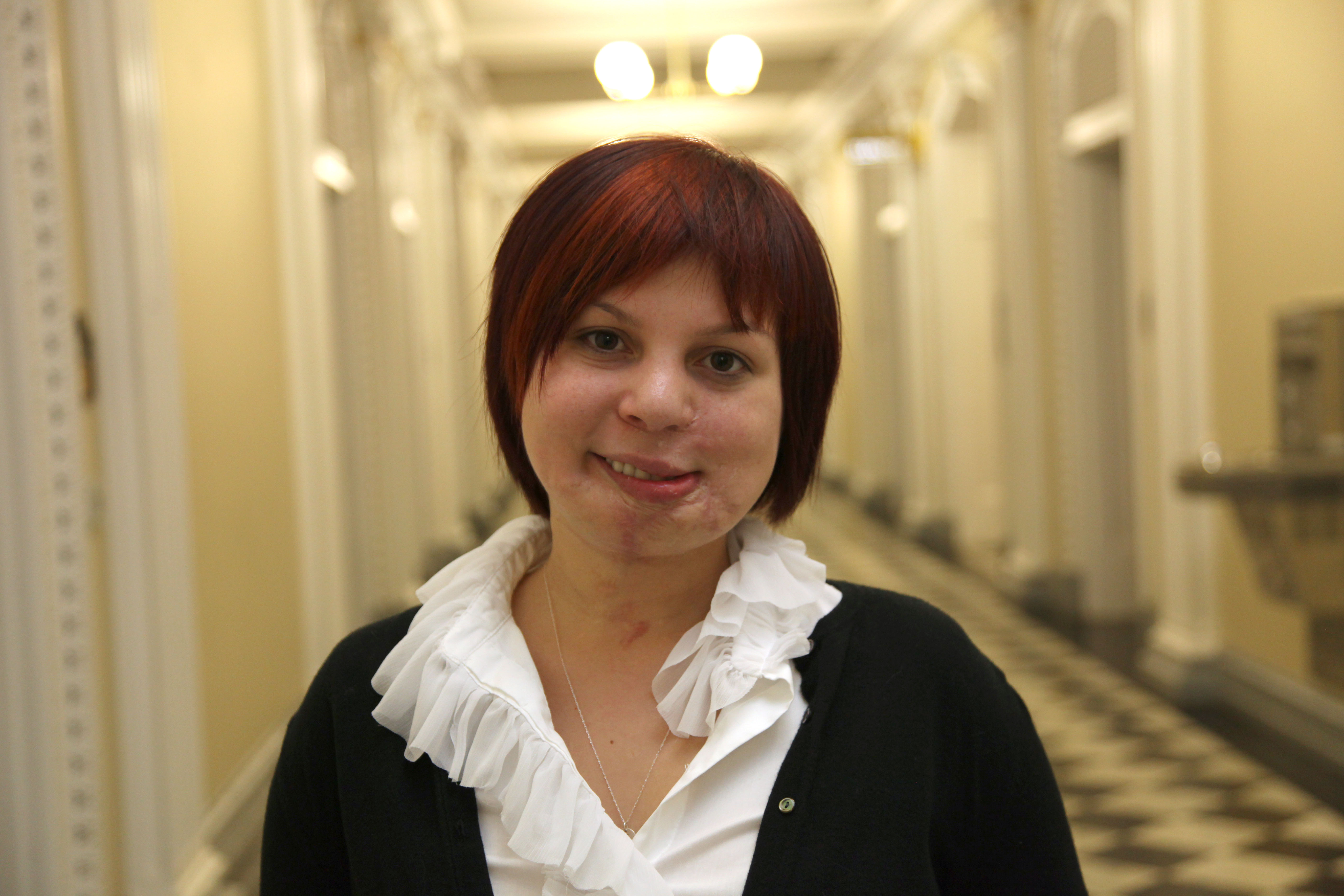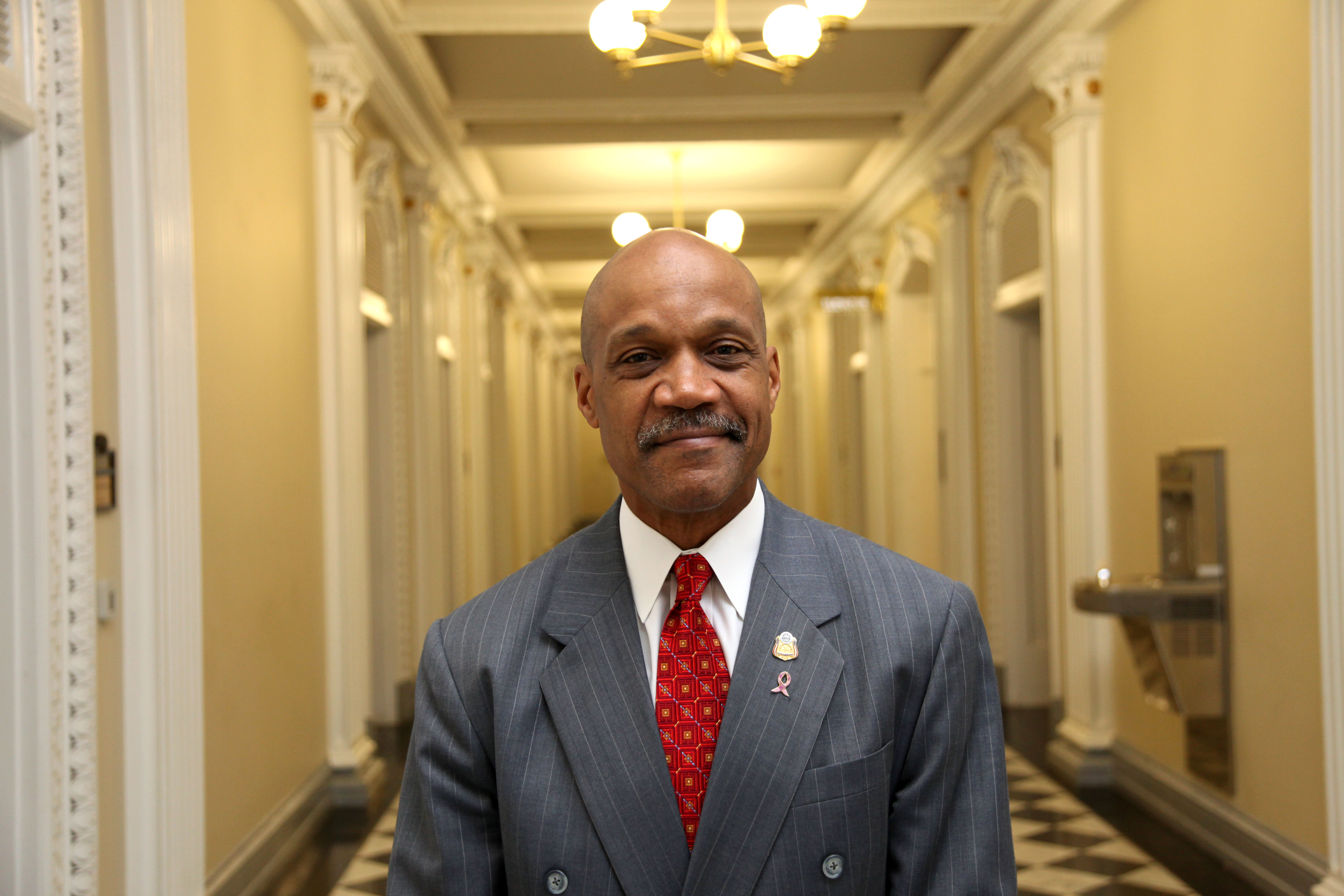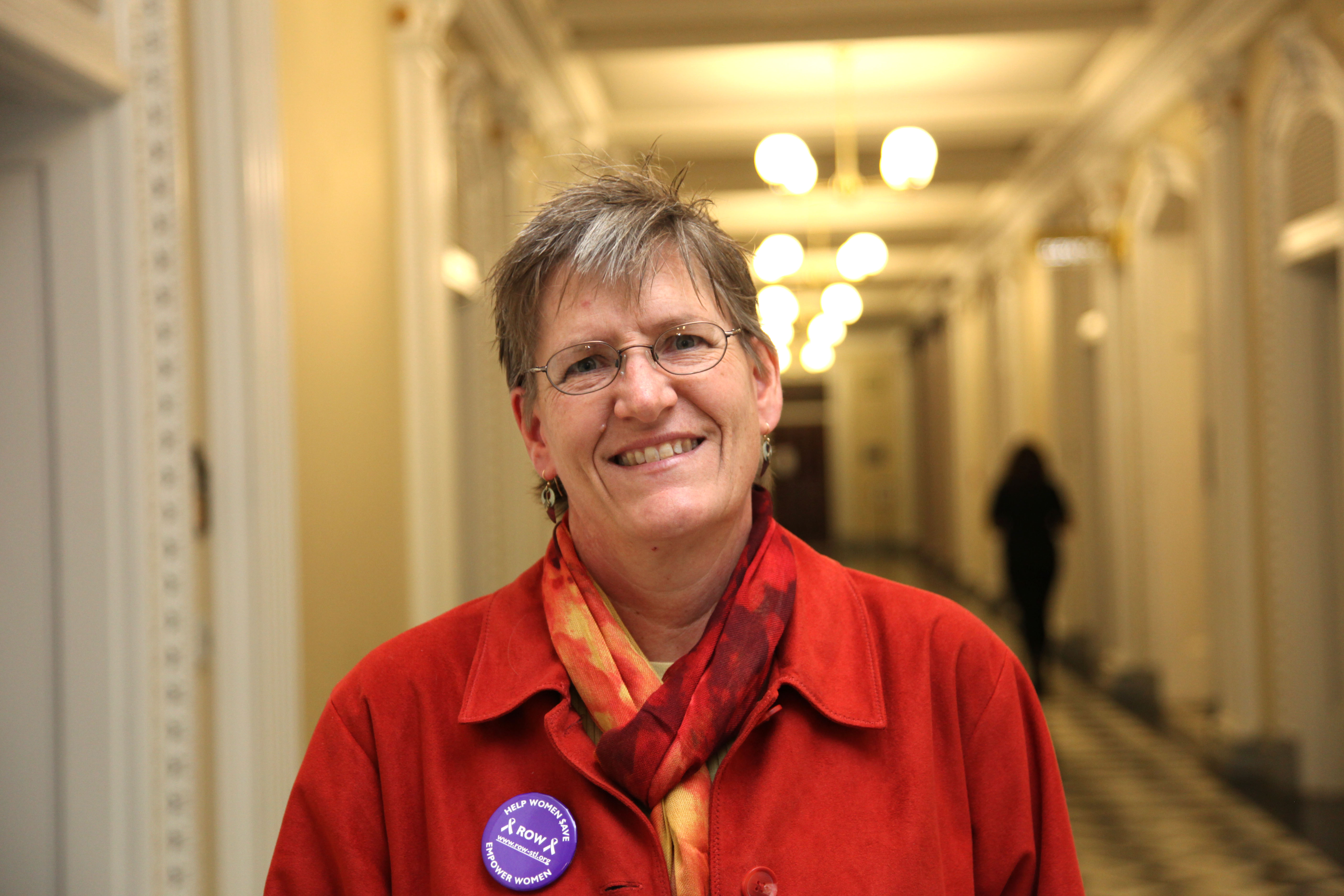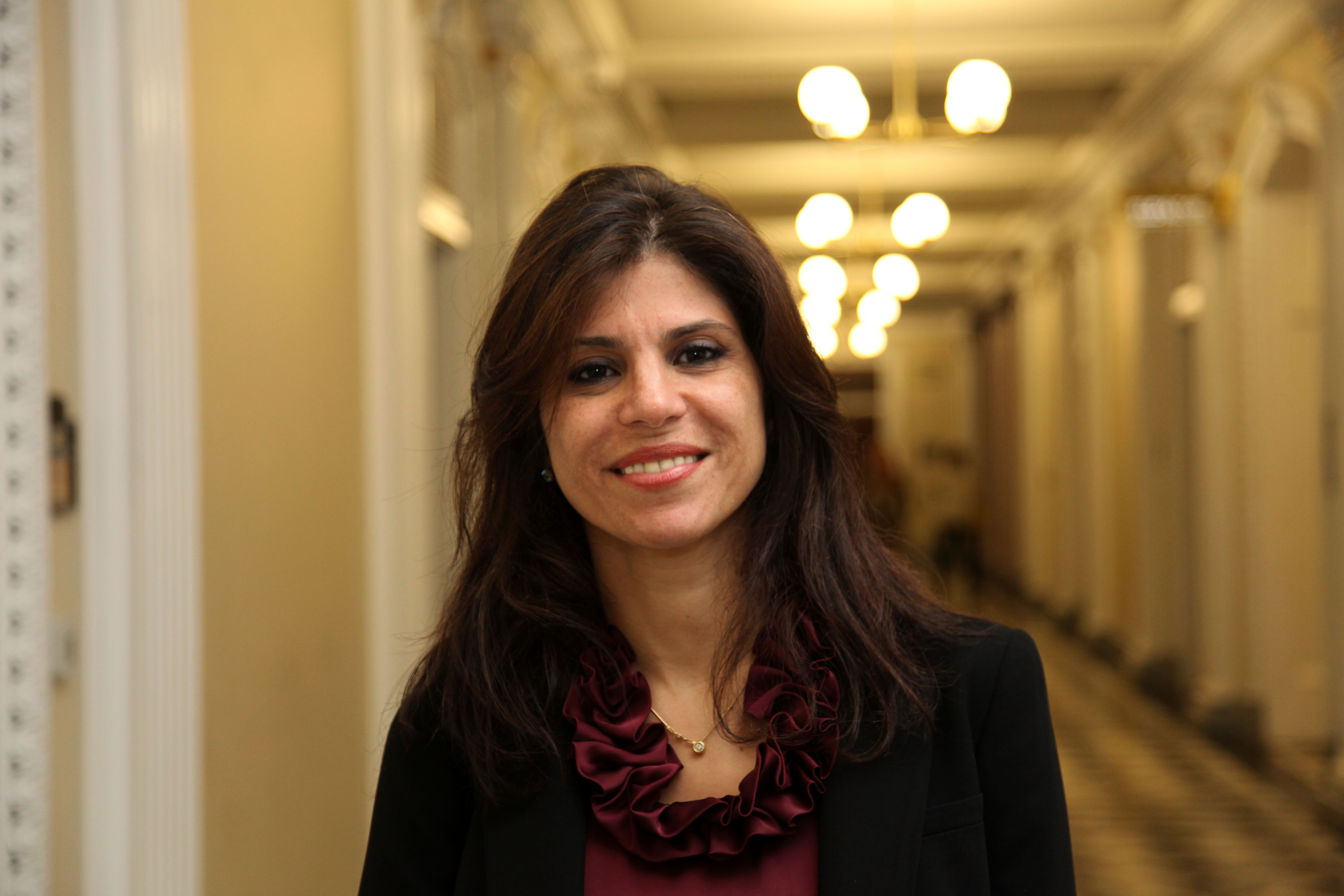Champions of Change Blog
We Need Breast Cancer Research
Posted by on October 27, 2011 at 6:28 PM EDTAs I left the White House event as one of 15 Champions of Change in the effort to end breast cancer, these things I know for sure. First, breast cancer every day shortens the lives of hundreds of thousands of people and causes families to lose mothers, sisters, wives and grandmas all too soon. This must stop. Second, every cancer organization in the United States must work to protect the provisions of the Affordable Care Act. Without access to quality, affordable, accessible health care, no one has a chance of beating breast cancer or any other cancer. The Affordable Care Act keeps insurers from dropping the insurance of those who suddenly receive a diagnosis of breast cancer; removes lifetime limits; and insures that those who have a prior existing condition, like breast cancer, can still purchase health insurance.
Third, as a patient with advanced or metastatic breast cancer, I know that we will only end deaths from breast cancer if we target our resources strategically to research what is unknown about breast cancer. That is, we must demand research that figures out what causes metastasis or the spread of cancer cells outside the breast to bone, lung, liver and brain. Because we do not know what causes metastasis, we do not know how to keep it from occurring in those with early breast cancer who think they have been successfully treated for their cancer. Among early stage breast cancer patients, 20 to 30 percent will go on to develop invasive or metastatic breast cancer 5 to 10 years later. My early breast cancer metastasized 12 years later.
I urge those who care about ending breast cancer to join with the efforts of the National Breast Cancer Coalition. There you will see how we at NBCC have set a deadline to end breast cancer by the end of the decade. You may think a deadline can’t stop a terrible disease, but a deadline creates a common, clear focus of strategic resources among a group of committed individuals who lobby scientists, researchers, clinicians and policy makers to change the conversation and find out what causes metastasis. We can do this and together our efforts will make a difference!
Finally, to those with Stage IV breast cancer, I urge you to speak out and use your voice to demand that our needs be addressed within the breast cancer community. I liken our situation to the early 80s when men were dying of AIDS and no one seemed to care. Like those brave AIDS patients who refused to be quiet, metastatic breast cancer patients need to speak out and demand more targeted treatments to end the spread of the disease so we can live with the cancer as people live today with AIDS or diabetes. They now live with a chronic disease for normal life spans. Visit the Metastatic Breast Cancer Network where you will find support, education and information.
Learn more about“The Fairy Tale Is Over"...Not Quite...
Posted by on October 27, 2011 at 12:45 PM EDTEd. Note: Champions of Change is a weekly initiative to highlight Americans who are making an impact in their communities and helping our country rise to meet the many challenges of the 21st century.
I wrote a poem and read it in court to a packed court room and to the Judge as part of a victim impact statement. The title of my blog above is one line from that poem, but as a survivor of a teen dating violence relationship, I have learned that the tale of my life is far from over. It has begun a new and exciting chapter in my life that has had great impact on others.
I was in an abusive relationship for two years with someone who said he loved me, cared about me and wanted to be with me forever. While the relationship felt like a fairytale, things changed over time. He became extremely jealous, controlling, and tore my self-esteem. Then eventually he began to physically abuse me. I broke up with him many times but he always manipulated me into taking him back. Finally, the last time I broke up with him, he didn’t want it to end. He broke into my room, sexually assaulted me and threatened my life. I did the right thing and told a teacher and through a series of events, he was arrested and placed on house arrest. While on house arrest, he got a shotgun, came to my home and shot me in the face.
This event, although tragic, was a new beginning for me. I had to heal internally and externally and then I was not going to let this tragedy stop me. I became involved in advocating for change for those teens who are still in abusive relationships. I testified in front of the Ohio State Senate and Congress to help pass two laws in the State of Ohio, House Bill 10 and House Bill 19. HB 10 now allows teens to obtain protection orders against an offender who is under the age of 18, a layer of protection I never had when I was being harmed and HB 19 which now mandates schools in the State of Ohio to educate grades 7-12 on the issue of teen dating violence. Passing these bills was so important to me because I know that there are many others out there like me that need education and protection.
Learn more about Health Care, WomenCombating Violence Against Women, My Calling in Life
Posted by on October 27, 2011 at 10:01 AM EDTEd. Note: Champions of Change is a weekly initiative to highlight Americans who are making an impact in their communities and helping our country rise to meet the many challenges of the 21st century.
On Thursday, October 20 I was both humbled and honored to receive a Champions of Change award along with 13 exceptional and deserving honorees. As I sat there and listened to the gripping stories of my fellow Champions it was clear to me that Dr. Martin Luther King Jr. got it right when he said, “The arc of the moral universe is long, but it bends toward justice.”
As a young boy I was blessed in countless ways, one of which was being mesmerized by the life and work of Dr. Martin Luther King Jr. Although many of my peers growing up idolized sports figures and entertainment stars my path went in a different direction. As I grew up I read all I could on Dr. King and it would be his pictures and quotes that appeared on my bed room walls.
By the time I arrived at college I had a developed a solidly structured ethic based upon the King doctrine; yet it wasn’t until I stumbled into my first Women Studies course that I discovered how I should channel my passion. It wasn’t until I sat and became educated on the status of women in our society, both past and present, that I realized what I should do with my life. It wasn’t until I learned a side of history that had been conveniently left out of the history books that I realized that there was a cause that had to be addressed sooner rather than later.
Learn more about WomenEmpowering Women to See Themselves and Their Relationships Differently
Posted by on October 27, 2011 at 2:08 AM EDTEd. Note: Champions of Change is a weekly initiative to highlight Americans who are making an impact in their communities and helping our country rise to meet the many challenges of the 21st century.
In response to intimate partner violence shelters remain a vital service that can assist survivors in escaping dangerous relationships, developing safety strategies, accessing community resources and offering opportunities to find jobs, housing and the skills needed to successfully transition back into the community. But in order to do that shelters need to operate in a way that supports and empowers survivors rather than exposing them to an environment that replicates the hierarchical structure and accompanying rules and limits that mirror the very relationship they are escaping.
Shelters that adopt a trauma-informed approach can offer survivors a sense of belonging, an accepting community, an environment that celebrates successes and allows for mistakes and the security that they will have the chance to grow and learn at their own pace. A trauma-informed approach allows everyone to be treated as an individual and interprets behavior in the context of the trauma rather than as conscious choices that are sometimes in conflict with others or even in conflict with what seems best for the survivor. Rules are not needed in such an environment because everyone is expected to be responsible for their own behavior and natural consequences are sufficient.
Learn more about WomenHelping Women to Achieve Long-Term Stability
Posted by on October 26, 2011 at 6:29 PM EDTEd. Note: Champions of Change is a weekly initiative to highlight Americans who are making an impact in their communities and helping our country rise to meet the many challenges of the 21st century.
On Thursday, October 20, 2011, I was honored to be among 14 individuals recognized during the Champions of Change event at the White House. I was joined by an incredible group of advocates and leaders who are equally passionate about ending violence in the lives of women and children within our communities. It filled me with a sense of pride to hear the many stories and to engage in a dialogue about what interventions are working to effect change at the community level.
My own work in the battered women’s movement began over 25 years ago. While it has been exciting to see increased shelter beds for women and children; enhanced police, court and health care responses; and a significant increase in the public’s consciousness about domestic violence within our communities, I have always known that this was not enough. It became clear that we needed to begin strengthening and prioritizing responses that would address the complexities of women’s lives that fell far beyond the scope of immediate safety and legal remedies.
Learn more about WomenAddressing the Needs of Domestic Violence Victims in the Context of Culture, Tradition, and Religion
Posted by on October 26, 2011 at 5:16 PM EDTEd. Note: Champions of Change is a weekly initiative to highlight Americans who are making an impact in their communities and helping our country rise to meet the many challenges of the 21st century.
On October 20, I was honored at the White House as a Champion of Change along with 13 other honorees from across the nation. I was honored as a Champion of Change for my work on child protection, domestic violence and sex trafficking. I was humbled to be among such an incredible group of advocates, all working to end domestic violence in their communities. I was in the company of some of my own personal heroes, and I look forward to the opportunity to continue to learn from their success.
My career started in the Middle East where I worked on the issue of child protection. Invariably, we have found that child abuse co-exists with domestic violence within families and communities. I came to the US over ten years ago to learn more about addressing both issues, and to learn from the successful intervention models that were already in use in this country. In 2006, I joined the Arab-American Family Support Center of New York (AAFSC) and have been privileged to work with dedicated professionals who develop and apply successful intervention models in the lives of women, children, and families every day.
At AAFSC, we have been pushing boundaries and leading the way in New York’s Arab and Muslim communities by addressing the sensitive issues of child protection, domestic violence, sexual assault, stalking and teen dating violence. All of our work is done within the cultural framework of Arab and Muslim communities, where these issues and related subjects are not part of the communities’ general discourse. Many victims in the Arab or Muslim community are not comfortable in seeking help from the police or other authorities. As immigrants, they may have had negative experiences with authority figures in their countries of origin. Our clients often come to us with feelings of isolation, distrust, or even despair, and they may consider our services to be their only hope of receiving the treatment and support they need and deserve.
Learn more about Women
- &lsaquo previous
- …
- 148
- 149
- 150
- 151
- 152
- 153
- 154
- 155
- 156
- …
- next &rsaquo
White House Blogs
- The White House Blog
- Middle Class Task Force
- Council of Economic Advisers
- Council on Environmental Quality
- Council on Women and Girls
- Office of Intergovernmental Affairs
- Office of Management and Budget
- Office of Public Engagement
- Office of Science & Tech Policy
- Office of Urban Affairs
- Open Government
- Faith and Neighborhood Partnerships
- Social Innovation and Civic Participation
- US Trade Representative
- Office National Drug Control Policy
categories
- AIDS Policy
- Alaska
- Blueprint for an America Built to Last
- Budget
- Civil Rights
- Defense
- Disabilities
- Economy
- Education
- Energy and Environment
- Equal Pay
- Ethics
- Faith Based
- Fiscal Responsibility
- Foreign Policy
- Grab Bag
- Health Care
- Homeland Security
- Immigration
- Innovation Fellows
- Inside the White House
- Middle Class Security
- Open Government
- Poverty
- Rural
- Seniors and Social Security
- Service
- Social Innovation
- State of the Union
- Taxes
- Technology
- Urban Policy
- Veterans
- Violence Prevention
- White House Internships
- Women
- Working Families
- Additional Issues






